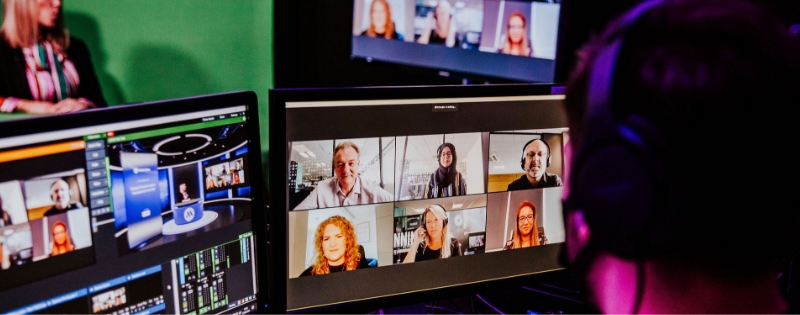As Covid-19 brought the business world to a standstill, many of our digital and cultural transformation plans were forced to follow suit. Business leaders, who had prepared to invest in remote working technologies over the upcoming years, were forced to engage them immediately. Conversely, many of the incumbent systems and processes projected to stand the test of time, became redundant overnight.
According to estimates from Gallup, 62% of the American workforce were pushed towards remote work during April 2020 and for the executives that were pursuing an innovation strategy, it was far from ideal. Covid has emphasized our agility issues and inability to leverage many communications tools effectively. We’ve all been forced to institute quick fixes where our infrastructure, network, and employees are concerned, but we need to prioritize adaptability over reactivity in 2022.
Even now, few businesses are fully prepared for the unforeseen. While most executives view innovation as a critical factor for growth, for change to be successful, we need to align all departments and staff to the overarching innovation goals of the business. In order to do so, it’s clear that we need to challenge the legacy mindset and culture.
Challenging Legacy Mindset & Culture: Tackling Fear of Change & Invigorating the Boardroom
Instituting cultural change in any organization cannot nor should not be solved overnight. Workers – whether they be employee or stakeholder – are often resistant to change; a resistance made even more reasonable following 2020. However, enterprise leaders shouldn’t be afraid of cultural sea change, as more than anything it’s an opportunity to fix well-known organizational issues and encourage technological growth.
For those planning to institute transformative digital innovation initiatives they must first ensure that their culture is aligned to – and welcomes – change. An effective digital culture will address each five core tenets:
- Extroversion Over Introversion – We need to encourage employees to engage with individuals outside of the immediate business to pursue solutions and innovation. What are competitors doing? We need to foster communities amongst businesses to drive success.
- Renounce Control and Delegate – There are areas in which executives can afford to renounce control. Are workers given the space to complete their tasks, or are they subject to rigid instruction? Loosen the leash wherever possible.
- Risk-taking or Risk Averse – No successful digital transformation program is without risk. Are employees confident enough to fail, and are they equipped to test, learn quickly, and try again?
- Action Over Planning – Planning is essential, but it is possible to plan too much. Does the organization support the need for speed and promote continuous iteration, or is it bogged down in perfecting a product or idea before launching it?
- Prioritize Collaboration – Collective work and information sharing across divisions, units and functions will be critical to effective change. Does the culture prioritize transparency and interaction over ownership and control?
By taking each of these values into account, executives can more easily prepare their organizations for the change that they would like to institute. Research from the International Data Corporation suggests that by 2022 organizations will be spending nearly $2 trillion on digital transformation. However, without first aligning the investment with the behaviors and values of employee’s, executives are burning money.
Carey Owen, a partner with Deloitte Risk and Financial Advisory states:
“When organizations undertake digital transformation & focus only on technology at the expense of culture, that can hinder progress in many areas. Technology is definitely a part of digital transformation, but unless leaders can ‘win hearts and minds’ throughout the process, efforts can stall or be less successful than they could be.”
Innovation is as much about the technologies which take you over the line as the employees who integrate them.
The case for culture change speaks for itself. According to a study from BCG, out of 40 companies undergoing digital transformation, the proportion of companies reporting financial breakthroughs were five times greater (90%) in those that focused on culture versus those that neglected it (17%). This finding is even more impressive when we consider that nearly 80% of the companies that focused on culture sustained strong or breakthrough performance.
To learn more, download the full report here or continue the debate at the Digital Innovation Insight Summit, a GDS Summit, where we bring together senior Human Resources executives who are actively seeking to share, learn, engage, and find the best technology solutions.
GDS Group hosts experts to help experts. We strive to provide an atmosphere for our attendees that enables them to confidently lead their companies through major transformation projects. For information on upcoming events, view our view our Digital Summits. To remain current on our activities, visit GDS Group on LinkedIn | Facebook | Twitter.















